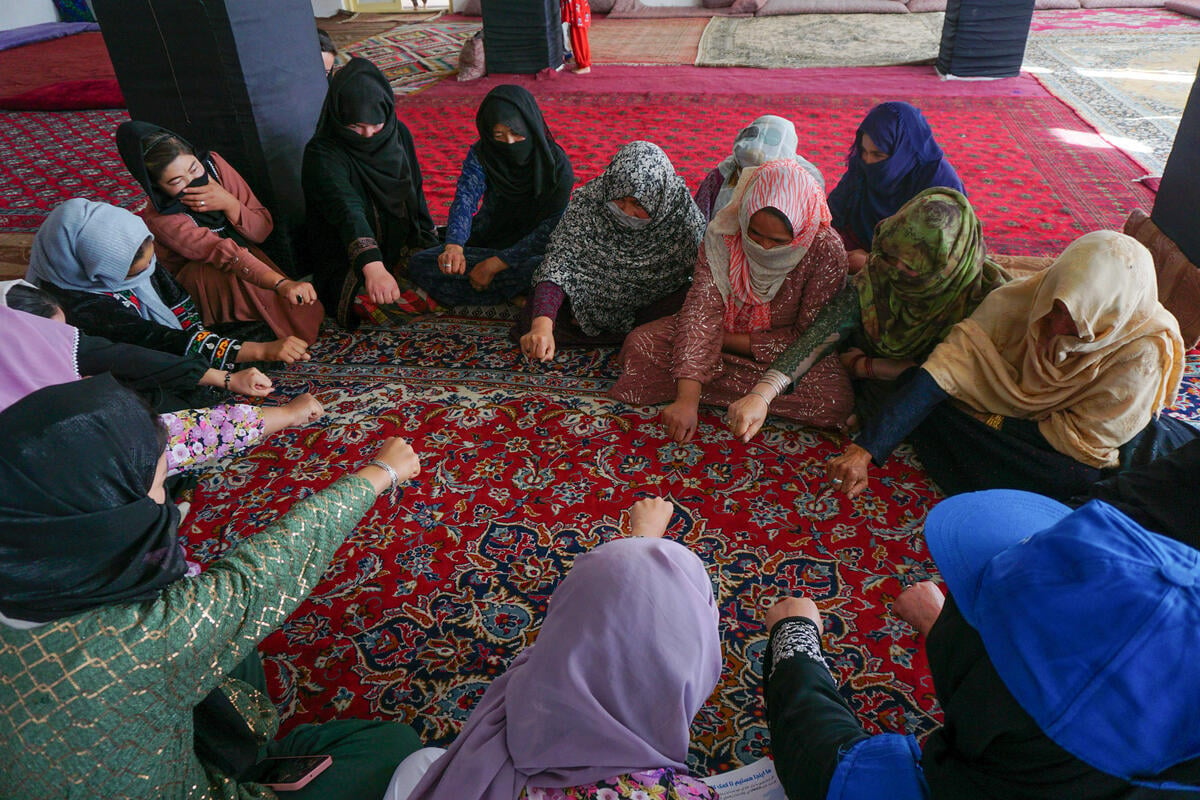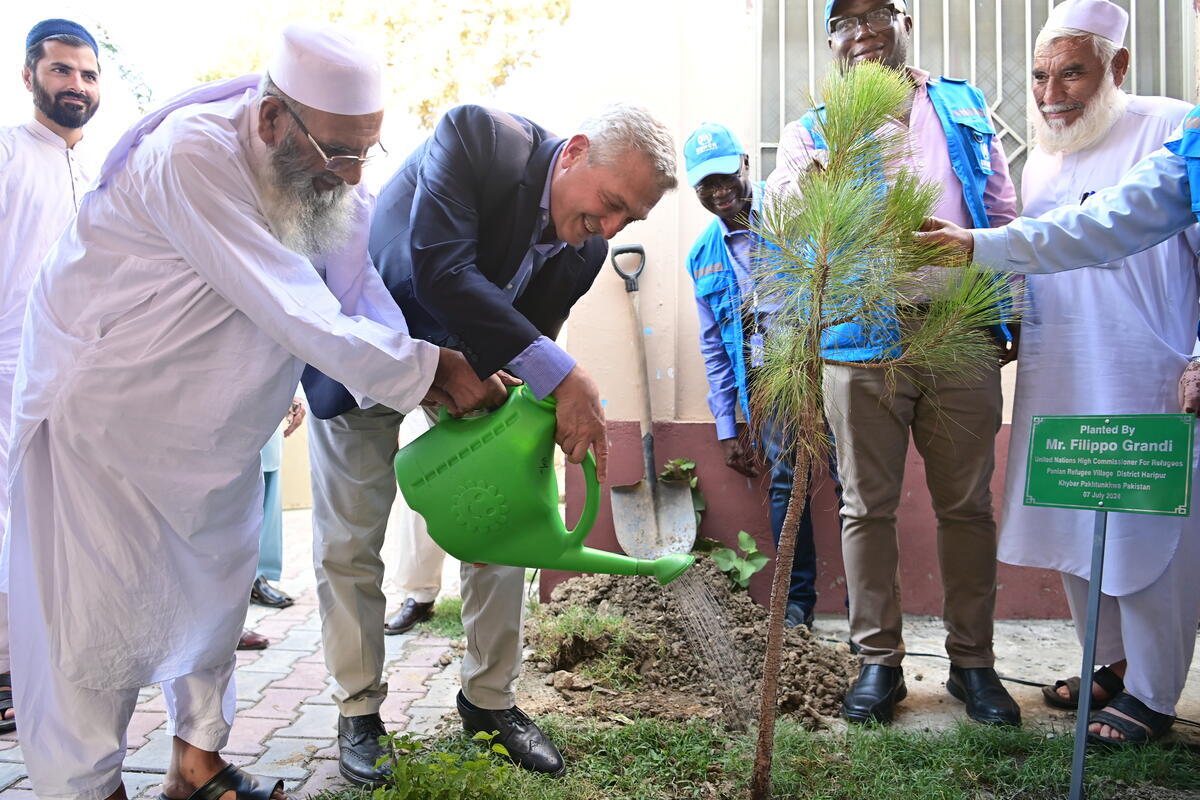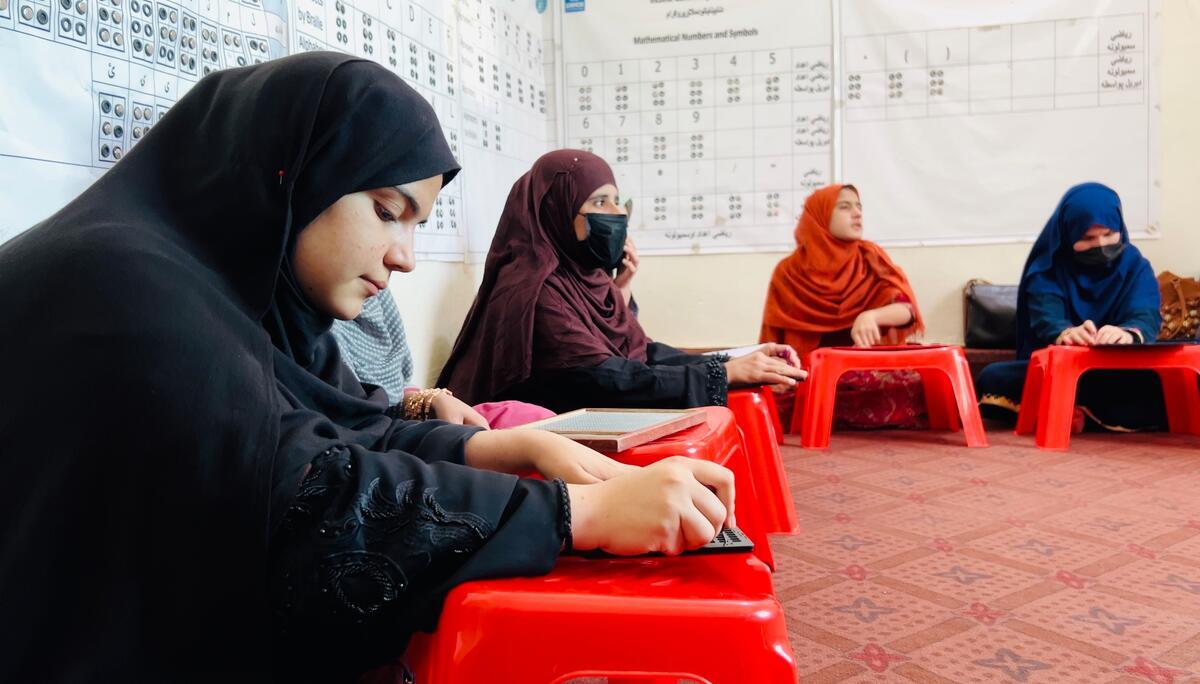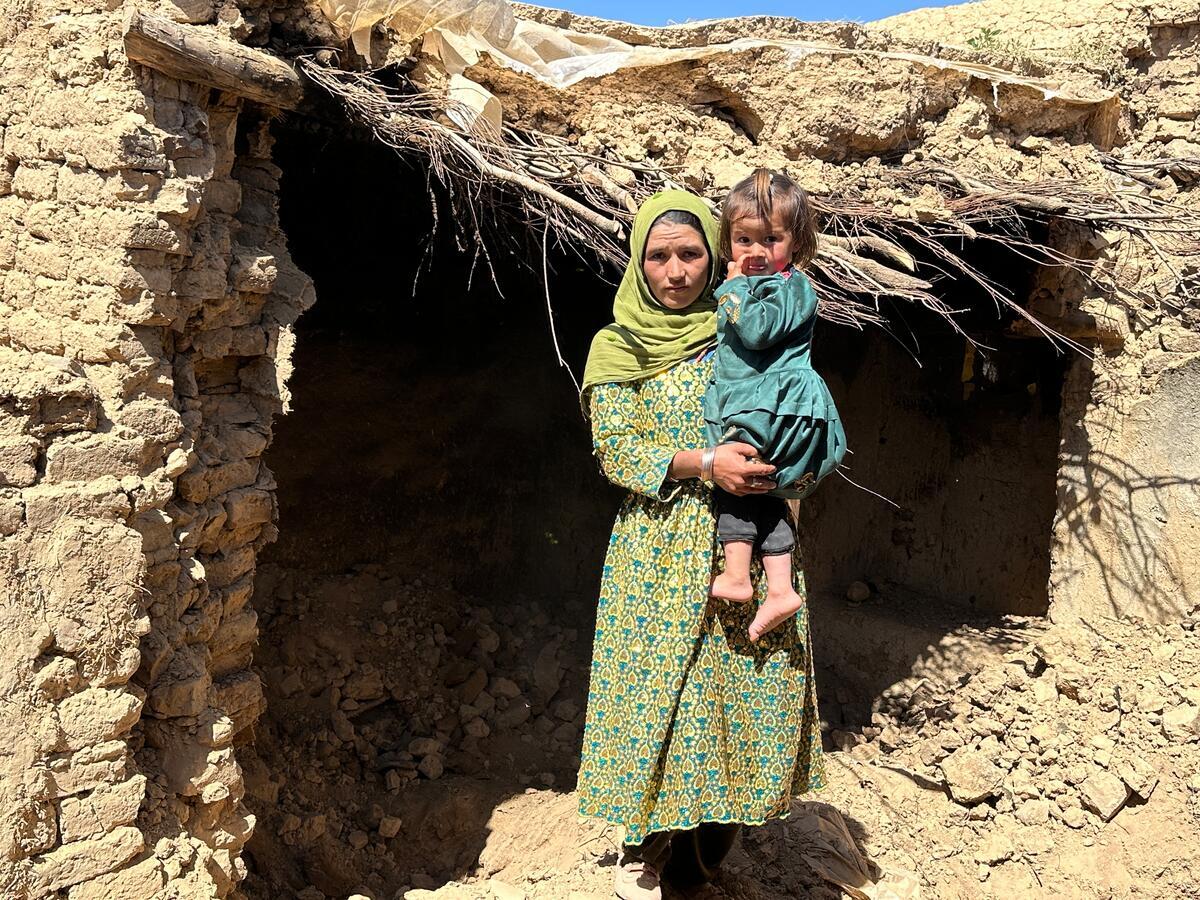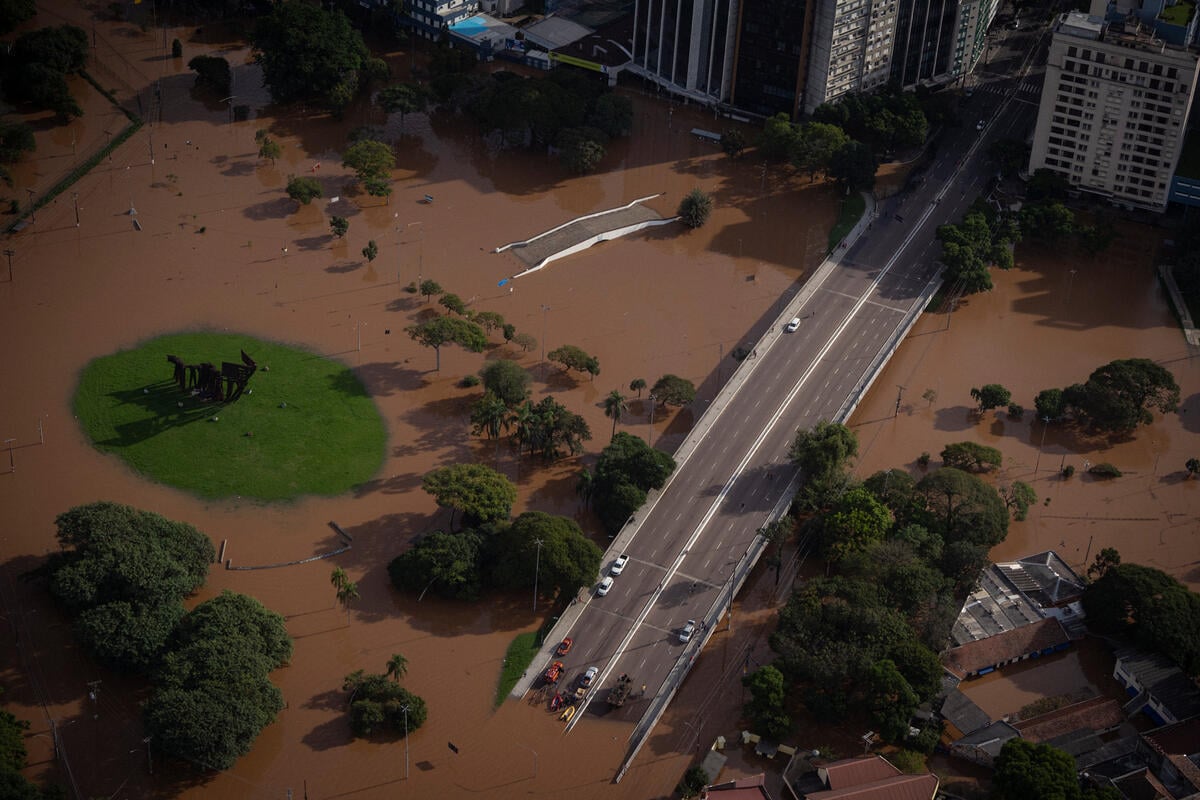Lubbers deeply concerned over Afghanistan violence
Lubbers deeply concerned over Afghanistan violence
13 September 2004
GENEVA - The High Commissioner for Refugees, Ruud Lubbers, has expressed deep concern after UNHCR had to suspend its operations in western Afghanistan for the second time in less than a month following the violence in Herat at the weekend.
Early on Sunday morning, several hundred protesters attacked the UNHCR compound in Herat. UNHCR staff took refuge in an underground bunker while the crowds looted the offices and surrounding buildings. Herat's other U.N. compounds also came under attack, and it took several hours before security forces were able to lead the staff to safety.
UNHCR is now relocating its personnel out of Herat. All UNHCR activities in western Afghanistan have been temporarily suspended, including the daily convoys for Afghan refugees in Iran who wish to repatriate.
"This suspension comes at the worst possible time for Afghanistan," Lubbers said, "when increasing numbers of refugees are coming back to their homeland, and just a few weeks ahead of an election that will shape the future of the country. It is crucial that U.N. staff be allowed to do their very important work at such a vital juncture. This process must take place in safety: it is intolerable that anyone's life should be endangered."
The violence, which left several dead and many injured, started after an announcement that Herat's governor Ismael Khan, was being moved to a ministerial post in Kabul. Supporters of Khan took to the streets of Herat and began several hours of rioting and clashes with governmental and U.S. troops.
The United Nations Secretary General, Kofi Annan, condemned the attacks as "perpetrated by a tiny group who tries to undermine the governments' efforts to restore security and stability in this part of the country."
More than a thousand Afghan refugees who were on their way back from Iran are stranded at the border following the suspension of UNHCR voluntary repatriation convoys. Around 1,000 are staying in a refugee camp, the rest are waiting in emergency shelter for the convoys to start crossing the border again.
More than one million refugees have returned from Iran to Afghanistan since the beginning of the UNHCR voluntary repatriation programme in April 2002 - up to 3,000 people a day in recent weeks. Herat is the first port of call within Afghanistan for refugees returning from Iran, and the recent instability in the region has delayed their travel on several occasions in the past few weeks. In August, UNHCR had to suspend its convoys from Iran for several days because of fighting around Herat between Khan's supporters and troops loyal to a rival regional warlord. In the longer-term, UNHCR is concerned that continued instability could jeopardise the chances of Afghan refugees still in Iran who wish to return home with UNHCR assistance.
In all, more than 3.6 million Afghan refugees have returned home - mainly from Iran and Pakistan - since early 2002.


